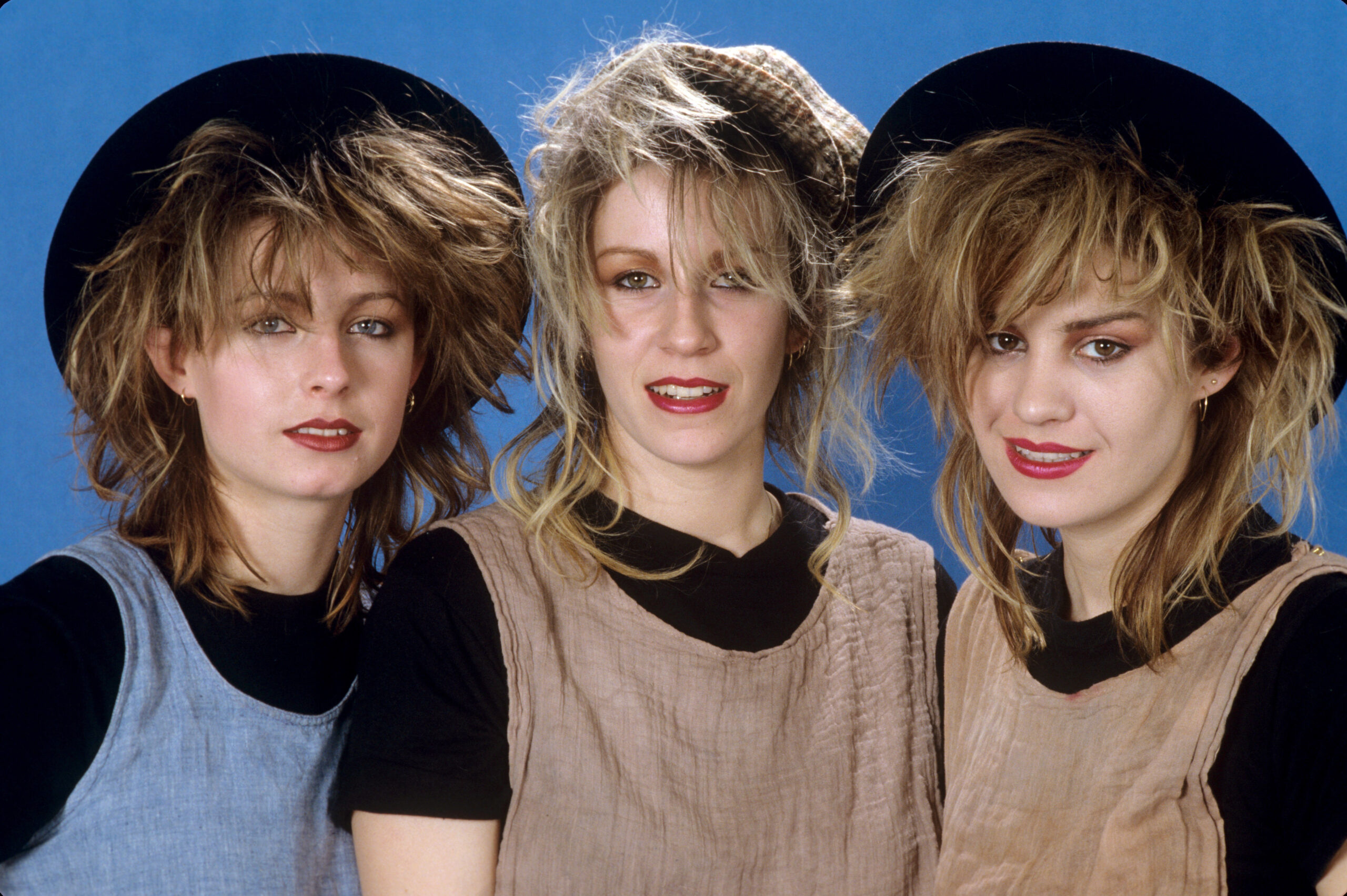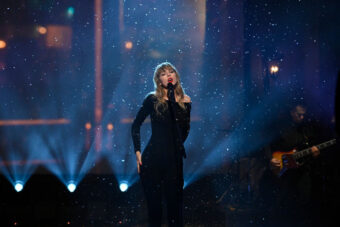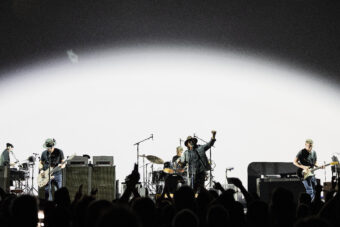“Older and wiser feels good. To be able to continue making music is a joy,” says Bananarama’s Sara Dallin, who feels lucky to have had a career spanning more than four decades.“Technology has changed wildly, but the creative process of writing songs is still the same and still the same thrill.”
Since she and friends Keren Woodward and Siobhan Fahey became Bananarama in the early ‘80s (Siobhan left the band in 1988), they’ve released twelve studio albums, including last year’s Masquerade, sold 30 million records, and even have their own entry into the Guinness Book of World Records for achieving the most chart-topping hits by an all-female group.
“I’m proud of our strength and tenacity as women, to succeed and survive in a male-dominated industry,” Sara says, noting that a long career inevitably brings “all the highs and the lows,” and she’s experienced them all. “Each decade was special and each taught me something different.”
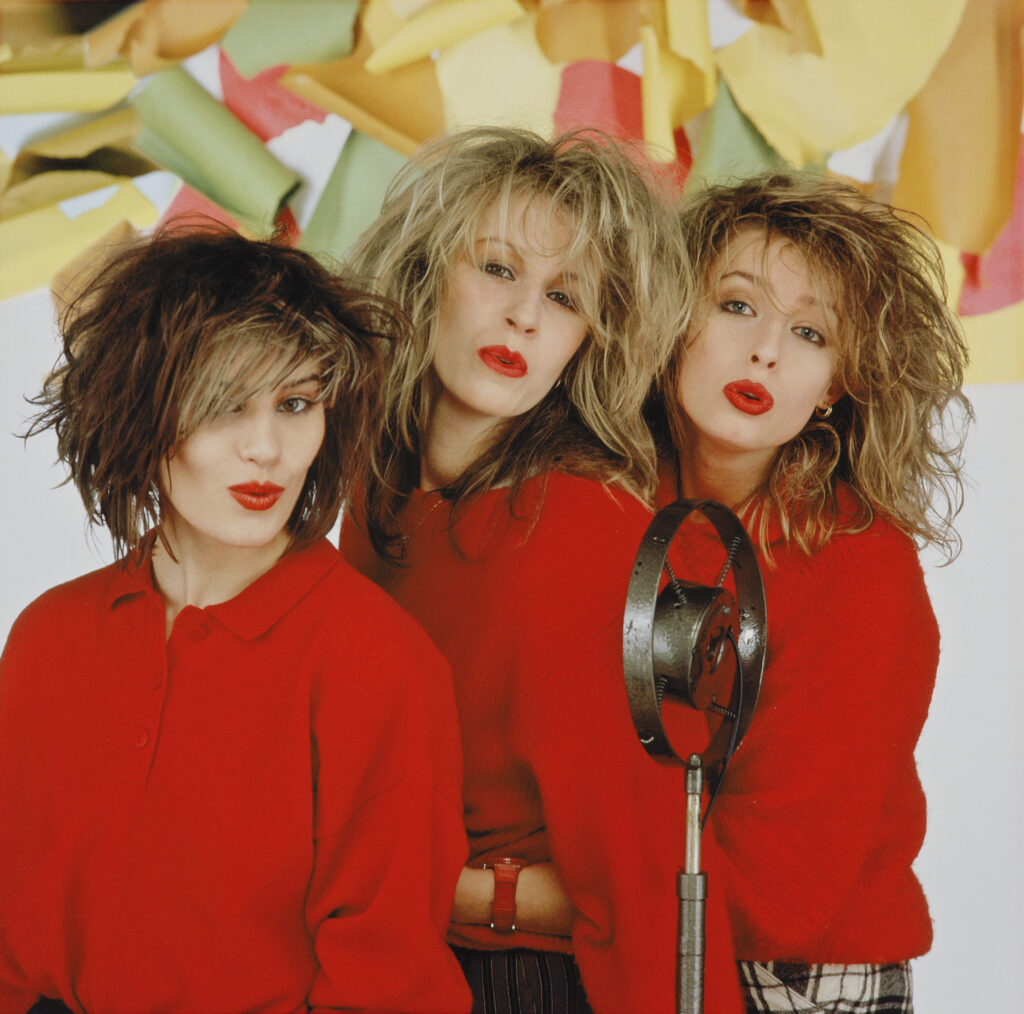
She describes her friendship with Keren as unbreakable, miraculous, and unique. “We’ve been together since childhood and will always have each other’s back,” she says. “It’s something that I never take for granted.” In 2017 they reunited with Siobhan for a “one-off reunion tour.” As Sara recalls: “Keren and I had done a World Tour in 1989 just after Siobhan had left the band in early 1988, so we had never [toured] together. In 2017, Keren and I wanted to do something different live-wise, so we approached Siobhan to see if she was interested in a one-off reunion tour. It was so much fun and a huge success. Thirty-plus years had passed since we’d worked together, but it felt like yesterday. It was hilarious.” Keren and Sara have continued to perform every year since the ‘90s. “Whether it’s playing new material or the classics, the audience is always there for a good time. It’s great to hear them singing our songs back at us.”
This June marks 40 years since the UK release of one of their most iconic hits, “Cruel Summer.” Released in the UK in ’83, peaking at No. 8, the song swept the summer of ’84 upon its US release, with the help from its inclusion in that summer’s smash box-office hit, The Karate Kid.
As of today, this summer’s looking pretty good for Sara Dallin. (“Not sure about the weather right now but we have a full summer of live work, holidays and a very important wedding.”) Here, she recalls the surprisingly simple start to creating one of the most recognizable/beloved/year-round-summer-inspired songs in pop history.
We had just moved into our council flat in Holborn, London. We wrote the song in our living room after the producers, Steve Jolley and Tony Swain, sent over a rough demo with some basic chords. I always had notebooks of poetry and scribbles and we’d just sit down and piece things together.
Our life was pretty hectic at this point. We’d had three Top 5 singles. The promotion was relentless around the world, so we were bemoaning the fact that all our friends were going on holiday and we were stuck in the heat of the city working. That’s where the idea came from.
I love the writing process and it always amazes me how something scribbled down and warbled into a dictaphone at my kitchen table transforms into the final, polished track.
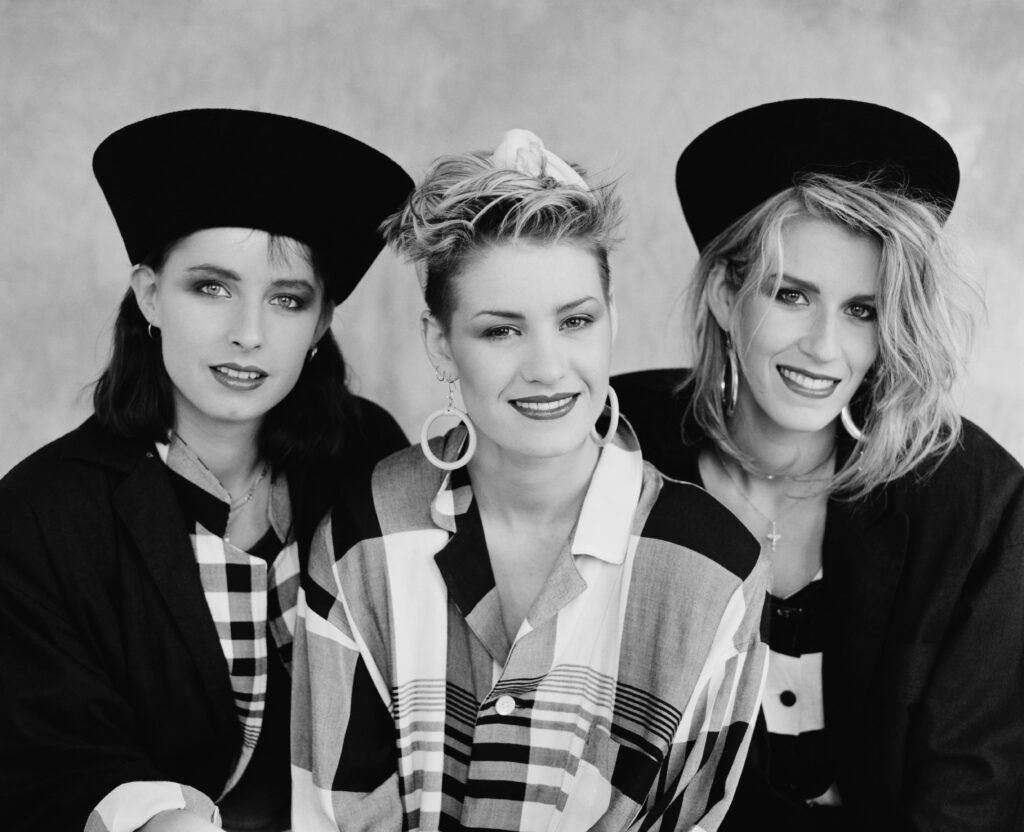
We had chosen those producers as we’d heard a song of theirs, “Body Talk” by Imagination, at the Wagg Club. It sounded so different and we instantly set about trying to track them down.
I think the musical and vocal arrangement is brilliant. We learned a lot from Jolley and Swain about songwriting and arrangements. They brought the track alive. They were very collaborative and allowed us to try things out.
We were so surprised by [“Cruel Summer’s”] huge success and thrilled that somebody had wanted to include it in a movie, The Karate Kid. We attended the premiere at Grauman’s Chinese Theatre and were so excited to see our names as the credits rolled.
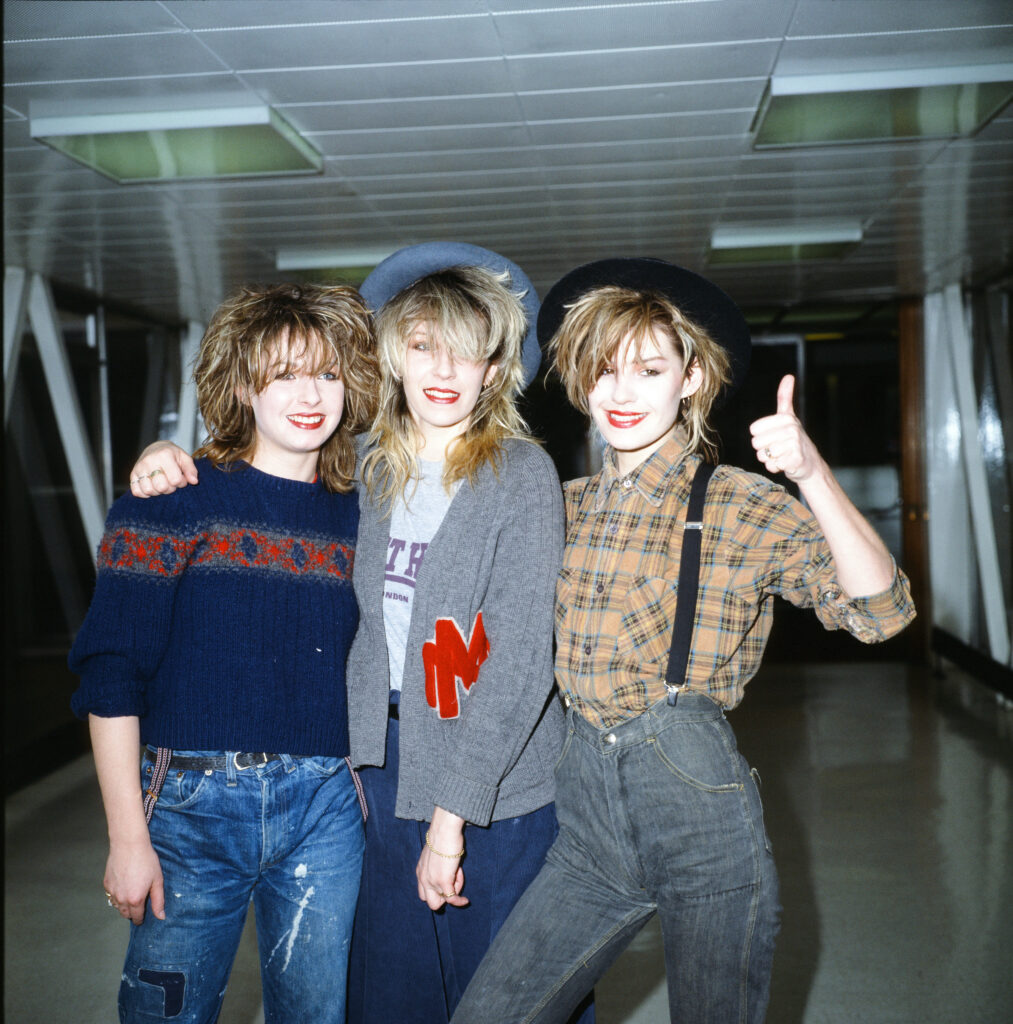
The summer of its release [in the US] we were in LA and everywhere we went the song was playing…laying on the beach in Santa Monica to visiting clothes stores and we were even serenaded by Mike Tyson when we bumped into him at the Sunset Marquis.
“Cruel Summer” was a big hit in Europe, particularly the UK and France, but I think America really took the song to their hearts. We were desperate to visit the US, so when we got the chance to film the video in NYC we were ecstatic.
MTV was absolutely crucial at getting your music heard around the world. Videos became as important as the music in the ’80’s. Obviously social media has taken over now.
The dungarees we wore we picked up from an army surplus store in London and they became our trademark even though we only wore them that once. There were no stylists or MUA’s [makeup artists] on the shoot. It was very DIY.
The only criteria for the video was to find a director who could fly us to New York and film it within the budget. New York’s summers are pretty hot, so it fitted the bill.

